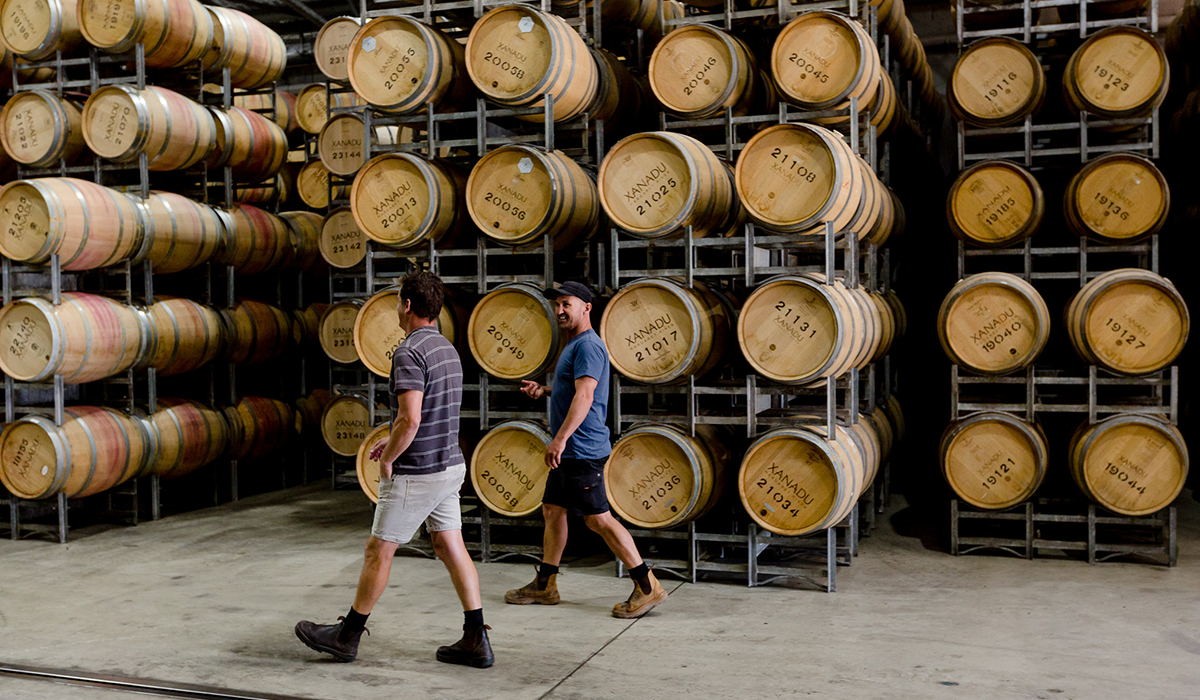The 2023 Western Australia vintage
A cool spring delayed flowering in Margaret River. In the Great Southern riesling, chardonnay, pinot noir and cabernet we the stars, and in the Swan Valley chenin blanc, verdelho, grenache and tempranillo were the heroes.
Margaret River had a cool spring that delayed flowering by one to three weeks across different varieties, creating a slow and steady growing season. Very dry summer conditions (no rainfall across the December to February period), but temperatures in line with long term averages, cool night times and no heatwaves, ensuring good acid retention and fruit vibrancy. The moderate, dry conditions through March and April also set the reds up well with excellent tannin, colour and flavour development. The only major issue was bird pressure and some isolated damage due to the lack of marri blossom. The standout varieties are
chardonnay,
sauvignon blanc and
cabernet sauvignon, with excellent quality overall.
The Great Southern had high winter/spring rainfall giving the vines a good, albeit two weeks late, head start. Mild conditions lead to a slow, even ripening; late March rain held up the reds, but a hot spell towards the end of April saw them finish off nicely.
Riesling, chardonnay,
pinot noir and cabernet were the standouts of a very late and prolonged, but overall successful, vintage.
 Xanadu in Margaret River.
Xanadu in Margaret River.
Pemberton had plenty of winter rainfall which filled up the dams; spring bringing drier weather, temperatures warm but not too hot. Cool nights before harvest started in March, the yields moderate. Sauvignon blanc and chardonnay were the standouts, with very good overall quality.
Geographe had warm and dry conditions leading up to harvest, with moderate to higher yields across all varieties.
Shiraz, malbec and chardonnay stood out in a pleasant vintage where yields and quality were both good.
Very good late winter rains and warm day time temperatures at the start of spring meant early season growth in the Swan Valley, the mild spring temperatures continuing to late November. No rain from mid-November until the end of March meant disease pressure was non-existent. A relatively mild summer (only two days with temperatures over 40°C), and heat spikes were shorter and lower than normal. Fruit ripened slowly and evenly, the harvest dates matching the past 25-year average, the table wine grapes picked at slightly lower baumes than usual with intensely flavoured fruit.
Chenin blanc, verdelho,
grenache and
tempranillo are the standouts of and excellent vintage.
Top image credit: Wine Australia.